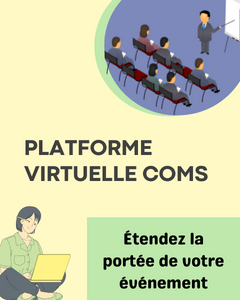Conférences > Mathématiques > Simulation
Sélecionner un pays
TOUS LES PAYS (14)
1
Heterogeneity and Variability in Pathogen Dynamics and in-host Modelling
15 fév 2026 - 20 fév 2026 • Banff, Alberta, Canada
Identifiant de l'évènement:
1668527
2
Dagstuhl-Seminar — Reduced and Mixed Precision Computing for Science and Engineering Applications
15 fév 2026 - 20 fév 2026 • Schloss Dagstuhl, Allemagne
Identifiant de l'évènement:
1670547
Page web:
3
Model-Informed Vaccine Development and Quantitative Systems Pharmacology/Toxicology
15 mar 2026 - 20 mar 2026 • Banff, Alberta, Canada
Identifiant de l'évènement:
1668556
4
WE-Heraeus-Seminar — Future of Integrated Assessment Models: Pathways Towards Carbon Neutrality for Climate, Environment, Health and Socio‐economic Co‐benefits
20 avr 2026 - 24 avr 2026 • Bad Honnef, Allemagne
5
NAFEMS EE26 — NAFEMS Eastern Europe Conference 2026
28 avr 2026 - 29 avr 2026 • Budapest, Hongrie
Identifiant de l'évènement:
1673968
6
A Roadmap towards Developing Mechanobiochemical Models for Single and Collective Cell Migration through Complex Non-Isotropic Environments
10 mai 2026 - 15 mai 2026 • Banff, Alberta, Canada
Identifiant de l'évènement:
1668624
7
Modelling of Plant Microtubules
17 mai 2026 - 22 mai 2026 • Banff, Alberta, Canada
Identifiant de l'évènement:
1668667
8
NASCA26 — Numerical Analysis and Scientific Computation with Applications
09 jui 2026 - 12 jui 2026 • Kalamata, Grèce
Identifiant de l'évènement:
1680313
Page web:
9
Variational Problems in the Physical and Data Sciences: Analysis, Modeling, and Simulation
05 jul 2026 - 10 jul 2026 • Banff, Alberta, Canada
Identifiant de l'évènement:
1668680
10
AUTOMATA & ACRI 2026 — AUTOMATA & ACRI 2026
06 jul 2026 - 10 jul 2026 • Gand, Belgique
Identifiant de l'évènement:
1692396
Page web:
11
Workshop — Collective movement and pattern formation: Biology, modelling and analysis
27 jul 2026 - 30 jul 2026 • ICMS, Bayes Centre, Edinburgh , Royaume-Uni
Identifiant de l'évènement:
1670116
12
MHBW02 — Modelling Behaviour for Global Challenges: Epidemics and Energy Systems
10 aou 2026 - 14 aou 2026 • Cambridge, Royaume-Uni
Identifiant de l'évènement:
1685026
Page web:
13
Nonlocal Aggregation Models in the Life Sciences
23 aou 2026 - 28 aou 2026 • Banff, Alberta, Canada
Identifiant de l'évènement:
1668794
14
The Fluid Mechanics of Volcanic Hazards
25 oct 2026 - 30 oct 2026 • Banff, Alberta, Canada
Identifiant de l'évènement:
1668949
Conference-Service.com met à la disposition de ses visiteurs des listes de conférences et réunions dans le domaine scientifique. Ces listes sont publiées pour le bénéfice des personnes qui cherchent une conférence, mais aussi, bien sûr, pour celui des organisateurs. Noter que, malgré tout le soin que nous apportons à la vérification des données entrées dans nos listes, nous ne pouvons accepter de responsabilité en ce qui concerne leur exactitude ou étendue. Pensez donc à vérifier les informations présentées avec les organisateurs de la conférence ou de la réunion avant de vous engager à y participer!
Dernière mise à jour: 3 janvier 2026



